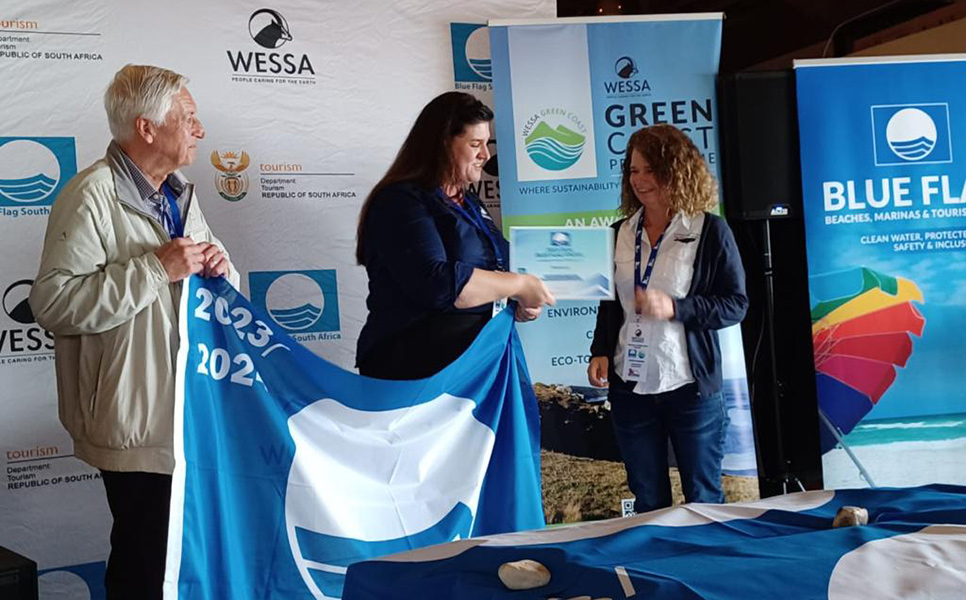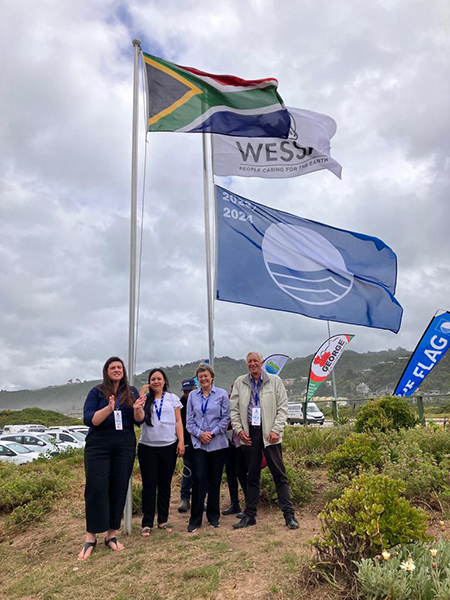A total of 48 top South African beaches have been awarded Blue Flag status for the 2023/24 season which opens officially on 1 December 2023. A further four marinas and six tourism boats have been acknowledged for their outstanding contributions towards sustainable coastal management.
The awards also allows for potential Blue Flag sites to participate in a pilot programme, where 23 pilot sites were recognised this year for their efforts in meeting the minimum requirements for Blue Flag status.
This was announced at the national Blue Flag launch in Wilderness on 20 October, highlighting innovative approaches to sustainable practices, conservation, education, and community involvement. By shining a spotlight on these achievements, the programme inspired and encouraged others to embrace sustainable coastal management principles.
The Blue Flag programme has been co-ordinated by the Wildlife and Environment Society of South Africa (WESSA) in partnership with the global Foundation for Environmental Education (FEE) and participating coastal municipalities since 2001.
Four of Overstrand beaches, Grotto, Hawston, Kleinmond and Castle Beach in Pearly Beach, yet again earned Blue Flag status for the upcoming holiday season. Onrus beach did not attain Blue Flag status this year due to the flooding that caused damage to the swimming beach and sewage line and will revert back to pilot status. Pilot status requires regular water sampling to be submitted to WESSA for approval in order to achieve full status again.
In addition, the two whale watching boats of Dyer Island Cruises (Whale Whisperer and Dream Catcher) and Slashfin, a shark cage diving vessel from Marine Dynamics, have earned the right to wave the Blue Flag once again. This year, another shark cage diving operator, White Shark Diving Company, was a first-time recipient of full status Blue Flag award. They operate from the Kleinbaai Harbour near Gansbaai.
Overstrand Executive Mayor, Dr Annelie Rabie, said worldwide, Blue Flag beaches are a major drawcard for tourists and are known as “being the best”, which is why tourists have come to trust the Blue Flag status and will seek out these beaches and boats wherever they are. She thanked all stakeholders for their hard work in keeping the Overstrand on the tourism map.
WESSA CEO, Helena Atkinson acknowledged and commended the exceptional efforts made by local authorities, communities and volunteers in achieving excellent world class standards this season.
“It takes great dedication and effort to manage a beach or marina to meet the rigorous standards set out for this prestigious award, and we extend our warmest congratulations to all the deserving sites that have achieved the eco labels,” she said adding that achieving Blue Flag or Green Coast eco label was not just a status symbol but an indication of collective effort, commitment and compliance.
“By providing ongoing education programmes and training, we are able to provide residents key information about beach quality management at Blue Flag or Green Coast sites. It is also a way to recognise the hard work done by municipalities in providing safe natural spaces and preserving our natural resources for future generations,” she said.
Blue Flag status is awarded one season at a time and municipalities must apply annually to renew the status of their beaches. Blue Flag standards are only enforced at the participating beaches as per the stated season, which varies from just one month of a year to the full 12 months.



